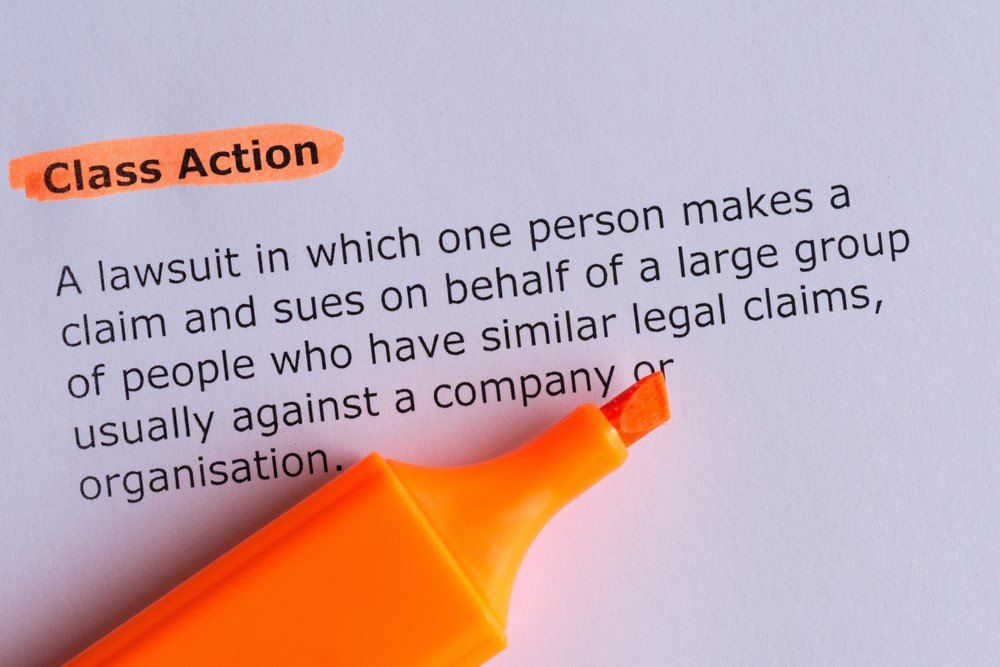Demystifying Course Action Legal Actions: A Closer Consider Legal Procedures
Course action legal actions can be challenging and intricate, often shrouded in a shroud of mystery for those unfamiliar with the legal proceedings included. From understanding the criteria for course activity eligibility to the duty of course agents, and from the procedure of course qualification to the resolution of these lawsuits, we will untangle the intricacies and dropped light on the inner workings of this lawful device.
Comprehending Class Action Claims
Recognizing Class Activity Claim requires an extensive examination of the legal procedures entailed in cumulative lawsuits. Course action claims are a kind of lawsuit where a group of people with similar insurance claims or grievances sign up with with each other to initiate a legal action versus an usual offender. This kind of lawsuits enables people with limited sources to collectively look for justice, as it incorporates the toughness of several individual insurance claims right into a solitary lawful action.
The procedure begins with the identification of a lead plaintiff or course agent who files the initial complaint in support of the entire class. The court then identifies whether the case satisfies the needs for class accreditation, which consist of commonness, numerosity, typicality, and adequacy of depiction. If licensed, the court notifies potential class members, offering them a possibility to opt-out if they desire to seek their claims individually.
As soon as the course is licensed, the litigation proceeds with different phases, consisting of discovery, motion technique, and, if required, trial. The outcome of the suit can result in a judgment or a settlement, which is binding on all class members unless they pick to opt-out. Course action claims can encompass a large range of legal problems, such as consumer protection, safety and securities fraud, work discrimination, and ecological harm.
Recognizing the nuances of course action suits is crucial for both offenders and plaintiffs entailed in collective lawsuits. It calls for an extensive understanding of the lawful demands for certification, the rights and commitments of course members, and the prospective advantages and threats related to safeguarding or going after versus class action insurance claims.
Identifying Course Activity Eligibility
To figure out whether a lawsuit qualifies as a course activity suit, particular criteria should be met. These standards are developed to make sure that the case can effectively represent the interests of a big team of individuals who have experienced similar damage or have actually been affected by the very same concern. The vital element in identifying class activity eligibility is the visibility of a typical question or issue that affects all possible course members.
To start with, a class action legal action requires numerosity, which implies there have to be a significant number of possible course participants involved. This makes sure that a course activity is an effective means to fix the claims of a huge group of people, as opposed to having each individual file an individual suit.
Second of all, there must be commonness among the cases of the possible course participants. This means that there need to be a common inquiry of law or fact that is main to the case. A class action might not be suitable. if each possible course member's case is special and unrelated to the others.

The Duty of Class Representatives
Class reps play an essential function in course action legal actions by representing the rate of interests of the whole class. These individuals are picked from within the class to website here function as the public face of the claim and are accountable for choosing in support of all course members. The function of class agents involves numerous obligations and obligations throughout the lawful procedures.
Among the primary responsibilities of course agents is to supply info and assistance to their fellow course members. They act as a factor of call and communication between the course members and the lawyers representing them. This consists of keeping the class participants educated around vital updates, answering their concerns, and addressing any type of concerns they may have.
Course representatives also have the task to proactively participate in the litigation process (BioVie class action lawsuit). This includes working carefully with the attorneys to develop legal approaches, gathering evidence, and giving statement if necessary. They have to be proactively involved in all elements of the instance to make certain that the very best passions of the entire course are stood for
In addition, course agents are in charge of accepting settlements or various other resolutions reached in the lawsuit. They have to thoroughly assess the regards to the negotiation and make a choice that remains in the very best passion of the whole course. This decision-making process requires cautious factor to consider and examination with the course participants.
The Process of Course Accreditation
The procedure of accrediting a course in a class activity lawsuit entails a comprehensive analysis of certain criteria to determine if the situation meets the necessary requirements for course qualification. Class accreditation is an important action in the litigation procedure as it establishes whether a claim can continue as a class activity, permitting a big team of individuals with similar cases to be represented jointly by one or a couple of people.
To acquire course qualification, the plaintiff should show that the proposed course satisfies certain requirements. These requirements normally include numerosity, commonness, typicality, and adequacy of representation. Numerosity calls for that the class read what he said is so huge that joinder of all participants is not practical. Commonality requires that there are concerns of regulation or reality usual to the class participants. Typicality calls for that the insurance claims or defenses of the course representatives are typical of those of the class. Adequacy of representation guarantees that the class representatives will fairly and effectively secure the passions of the course.
If the suggested class fulfills the required requirements,The court will certainly inspect these criteria and the complainant's evidence to establish. The court might also take into consideration other factors, such as whether a course action is the premium technique to fix the useful source dispute and whether the course is sufficiently natural.

Once the court gives class certification, the suit can proceed as a class activity, permitting the complainants to jointly seek relief and possibly get a judgment or negotiation that benefits the whole class.
Handling Class Action Lawsuits
Once class accreditation has actually been granted, the following step in fixing a class activity suit is to browse the procedure of litigation or negotiation negotiations. Litigation refers to the lawful process in court, where the plaintiff's lawyer provides proof and arguments to sustain their insurance claims, and the defendant's lawyer counters with their very own evidence and debates. This procedure can include various stages, such as pretrial motions, discovery, and test. During pretrial movements, both parties may submit motions to disregard the case or slim down the issues in contention. Exploration allows each side to collect evidence and details from the other celebration through techniques such as record requests, depositions, and interrogatories. If the instance proceeds to test, both parties provide their instance prior to a court or jury, who will certainly after that make a decision the end result.
On the various other hand, negotiation arrangements entail conversations in between the celebrations to get to an equally appropriate resolution without mosting likely to test. Future FinTech class action lawsuit. Negotiation supplies may be made at any phase of the litigation process, and if both parties concur, a settlement agreement is gotten to. This arrangement generally details the terms of the negotiation, including any monetary compensation, injunctive relief, or other remedies. Once the settlement is completed, it is presented to the court for approval.
Verdict
In verdict, course action claims play a vital duty in giving justice and compensation to large groups of people who have actually been hurt by the same entity. By selecting and accrediting a class class agents, the lawful process ends up being much more obtainable and efficient for the plaintiffs. Handling these lawsuits can be a complex and lengthy procedure, however it is vital in holding companies accountable for their activities and ensuring reasonable end results for all impacted events.
From comprehending the criteria for course action eligibility to the role of class reps, and from the procedure of class qualification to the resolution of these lawsuits, we will untangle the intricacies and dropped light on the internal workings of this legal device. The key aspect in identifying course activity eligibility is the presence of a typical inquiry or problem that influences all prospective class participants.
If each prospective course participant's case is unique and unassociated to the others, a class action may not be suitable.
Course reps play an essential function in course activity legal actions by representing the interests of the entire course.As soon as class certification has been approved, the following action in fixing a course activity legal action is to navigate the process of litigation or settlement negotiations.